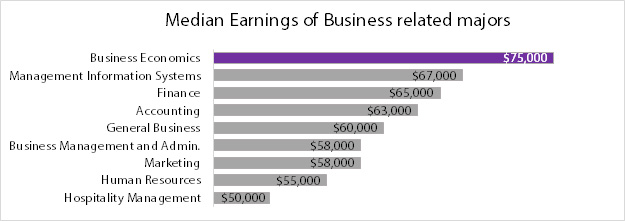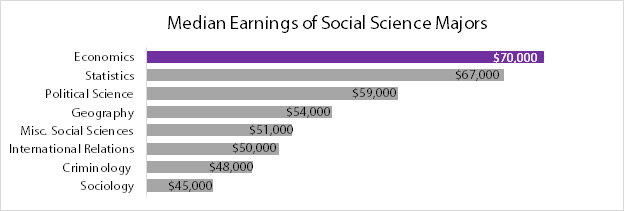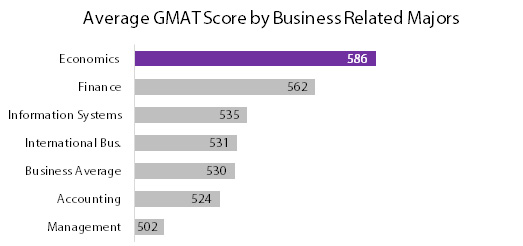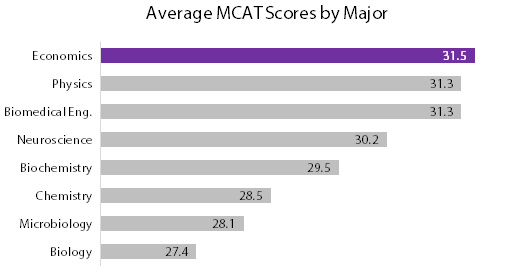Why Economics?
Economics applies disciplined thinking to the most interesting questions in society, business, and daily life. It combines a rich theoretical framework with technical tools and common experience to deepen our understanding of the world. Economics helps us make better decisions in an impressive variety of settings.
Because of this, students often find the economic way of thinking to be an exciting addition to their education. If you are among those intrigued by the topics and tools of economics, we invite you to consider the economics major.
The economics major is an excellent springboard to many interesting careers, graduate school, or professional school. Historically, the majority of economics majors have followed careers in business or public service. Others have gone on to law school, MBA programs, studies in related areas such as public policy, and advanced training in economics.
Careers. Some economics majors serve as economists for businesses. In this capacity they help companies streamline their operations, predict market futures, and set competitive prices. Most use the skills they have developed to advance in business careers outside of economics. Also, governments of all levels and non-profits hire economists to help them improve their operations and provide policy recommendations. Other K-State economics majors have used their skills to become successful entrepreneurs. Essentially, there is a need for skills in economics in every sector of modern life. You can learn more about careers for economics majors here.
Salaries. The skills of well-trained economics majors are in high demand and salaries reflect this. One of the best sources of information on wages by major is the Hamilton Project at Brookings. They provide information on the median income of workers aged 29-55 based on the major they earned in college. Economics majors do very well in this study. Since economics spans the social sciences and business, we provide graphs below showing how economics majors fare relative to majors in related areas.


These figures show that economics majors do well whether they focus on the business or social sciences side of economics and outperform those with similar majors. How do they compare with majors in science and engineering? Quite well again. In this same study, the average salary of those with majors from the computers and mathematics group was $70,000 and the average in the engineering group was $75,000.
Professional School. An undergraduate degree in economics is an obvious stepping stone to graduate study in economics. You can learn more about this here. However, economics majors go on to study various subjects at the graduate level, aided by the emphasis economics puts on critical thinking. The training our students receive in the economic way of thinking, translates well onto the tests of many different graduate exams.
Law school is a common path for economics majors. Students with economics degrees score higher on average than any other major on the Law School Admissions Test, helping them get placed into more prestigious law schools. In addition, many careers in law revolve around economic decision making, where our students have a natural advantage.

Economics students also commonly go on to MBA programs, most of which require prospective students to take the GMAT. Like the LSAT, economics majors score very high on this test. Below is a graph comparing economics majors GMAT scores to the scores of other business related majors.

Students of economics even score well in places you wouldn't expect. Most programs are looking for students who can think rationally which is what economics teaches, and it translates well into exam scores. An example is the MCAT, which is required for entry into most areas of medicine. The following is a list of the majors with the highest average total MCAT scores.
